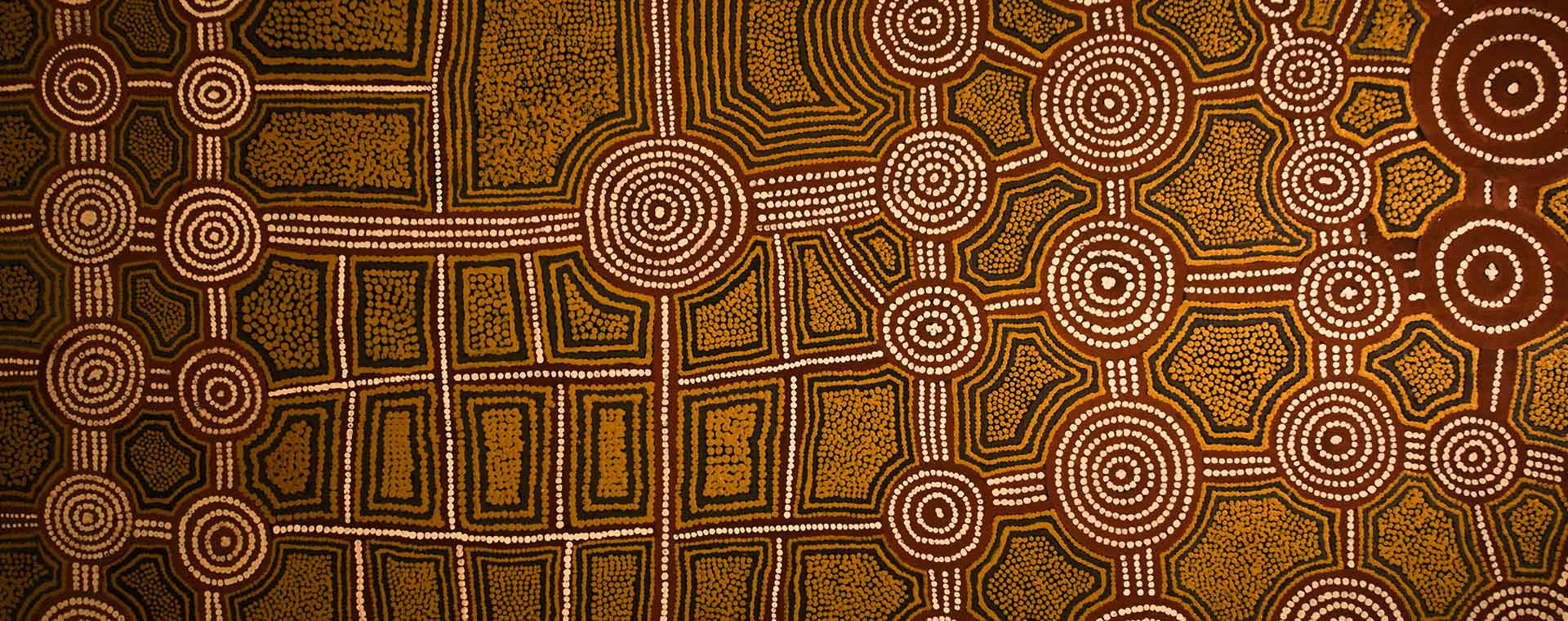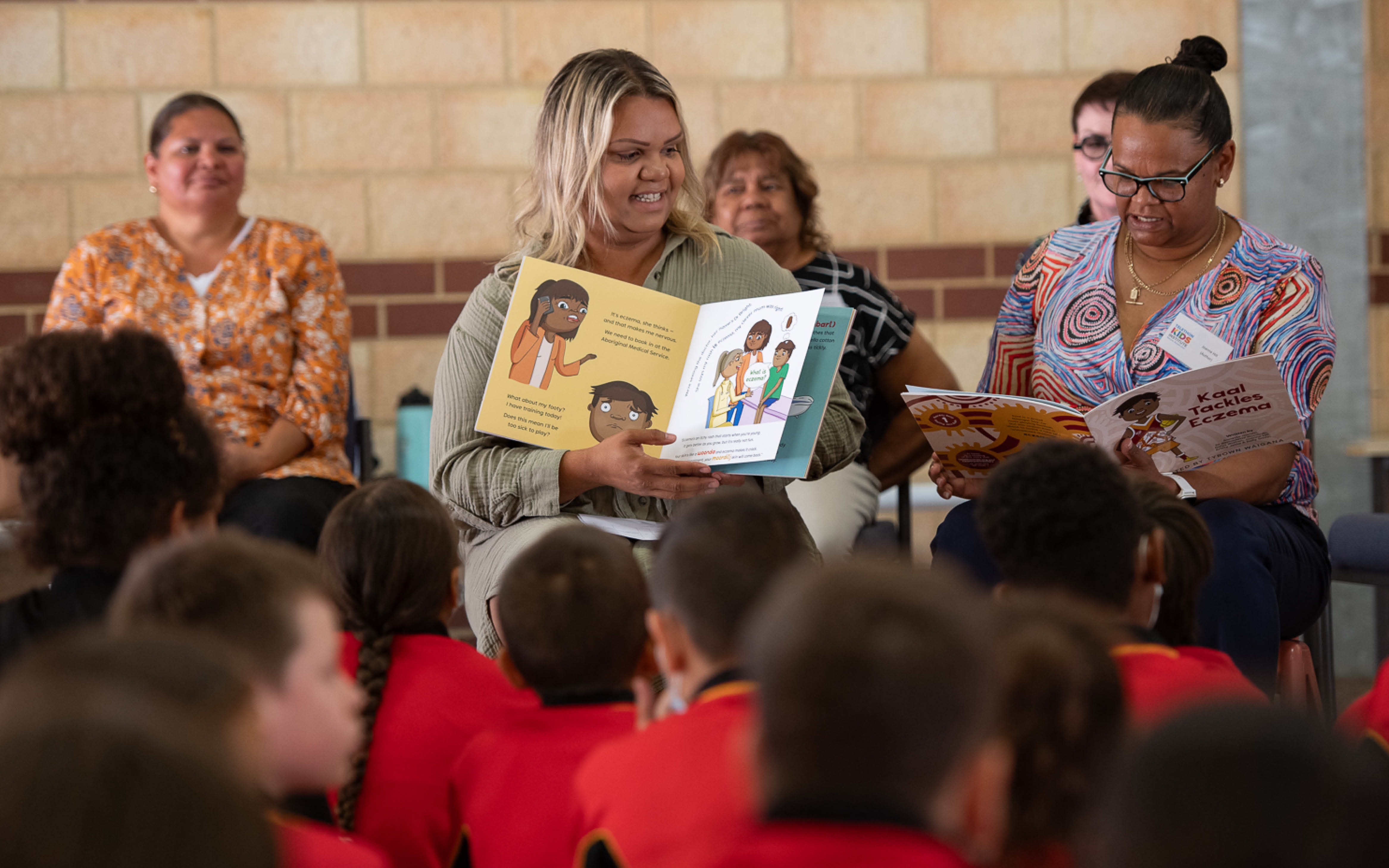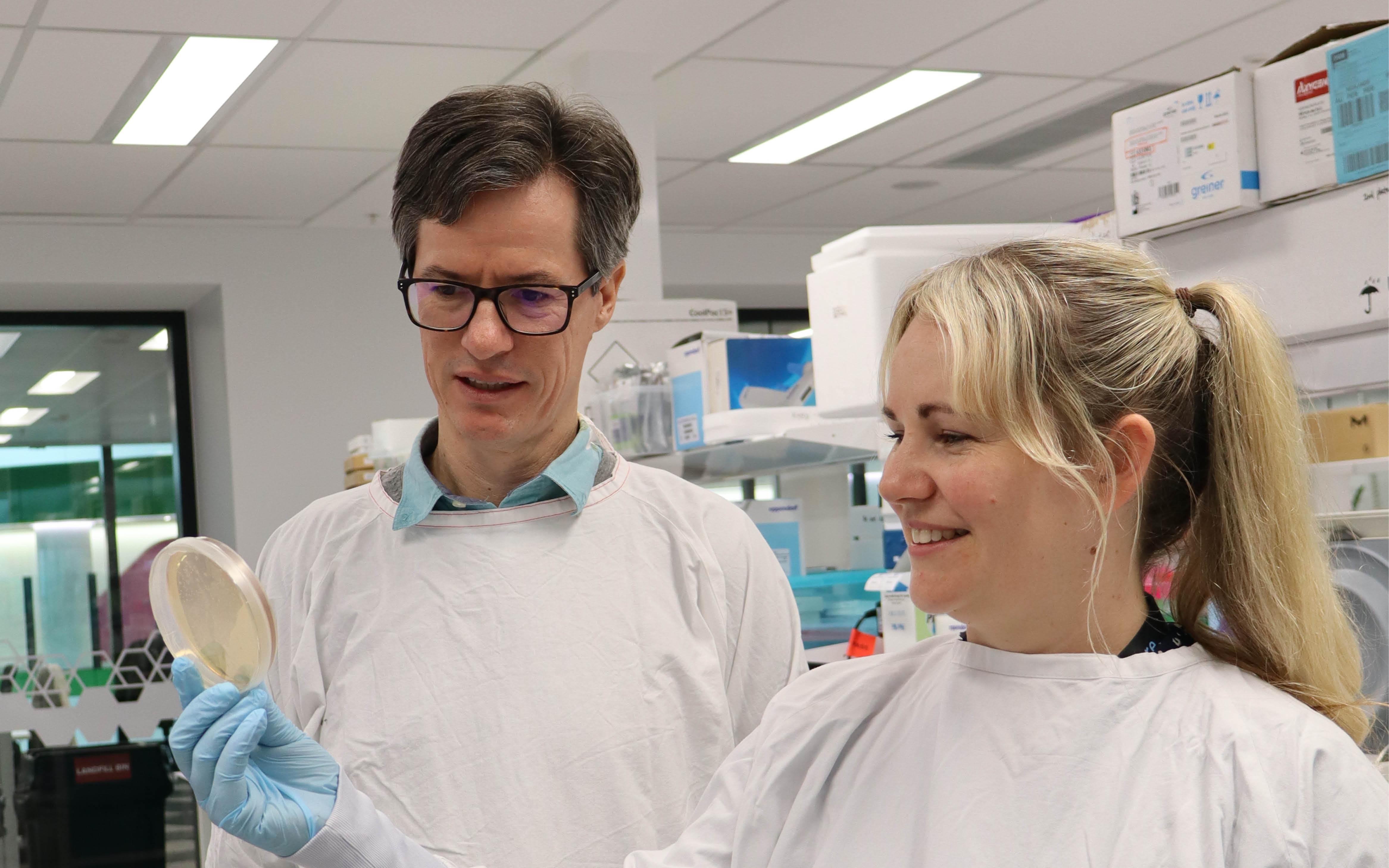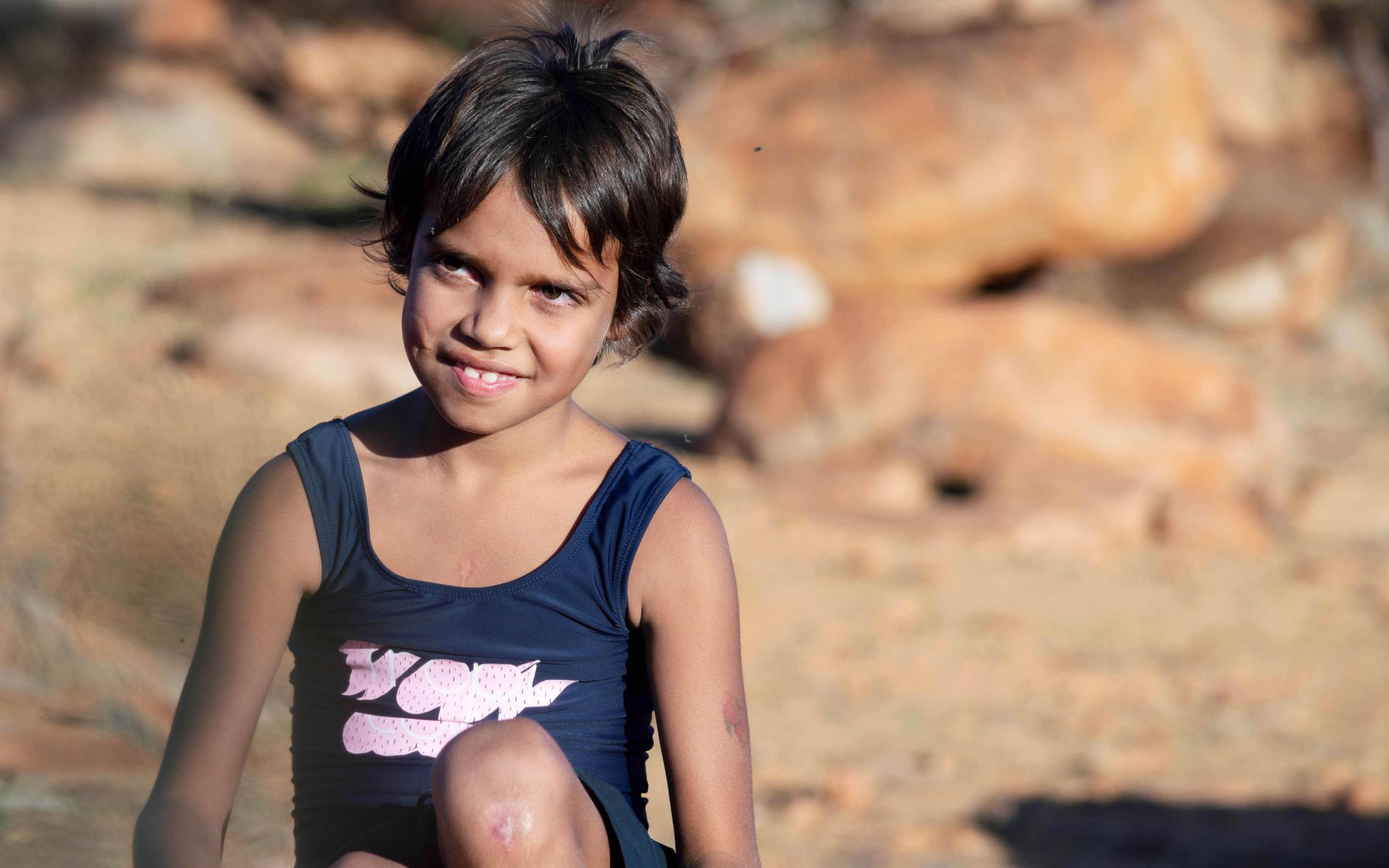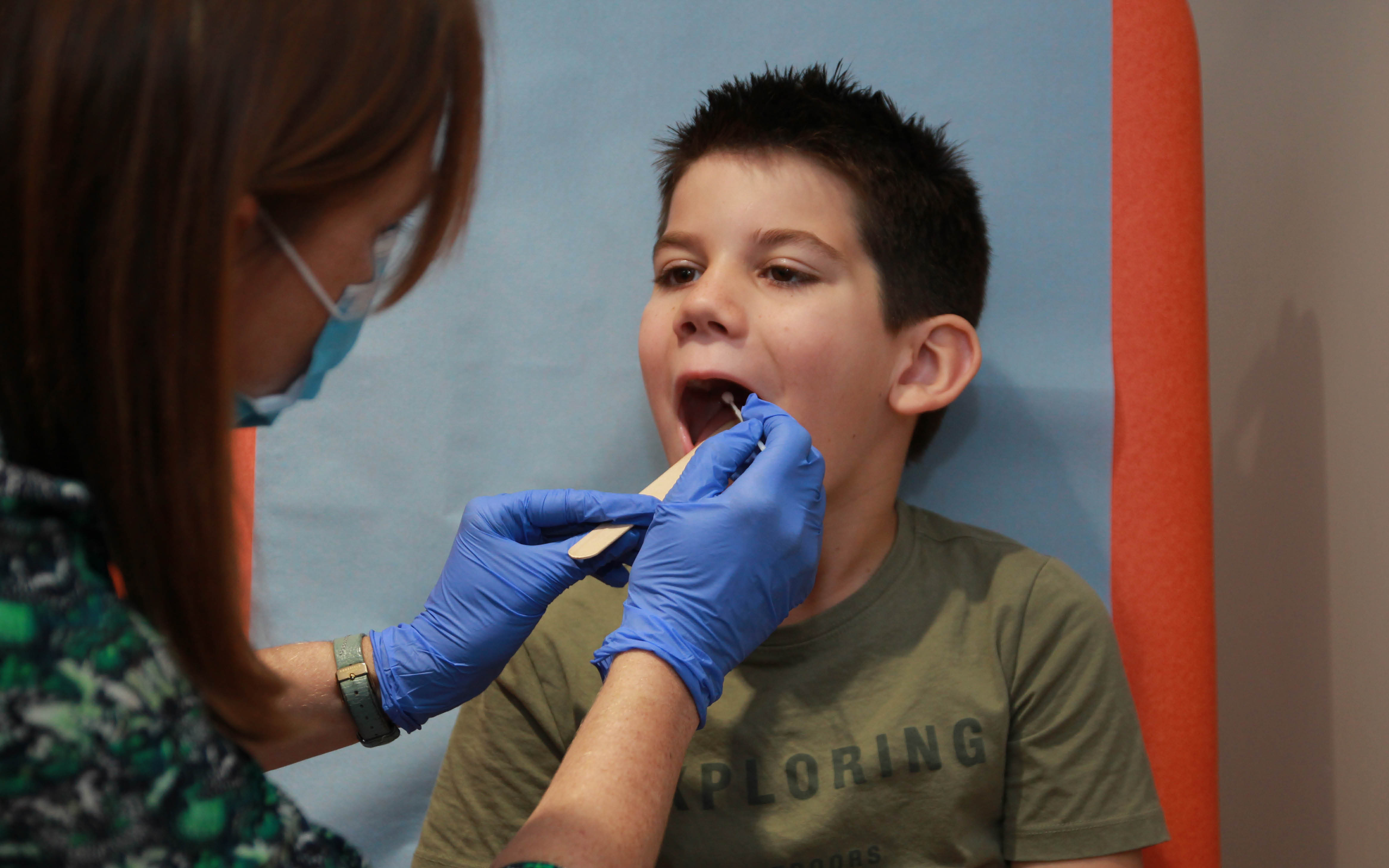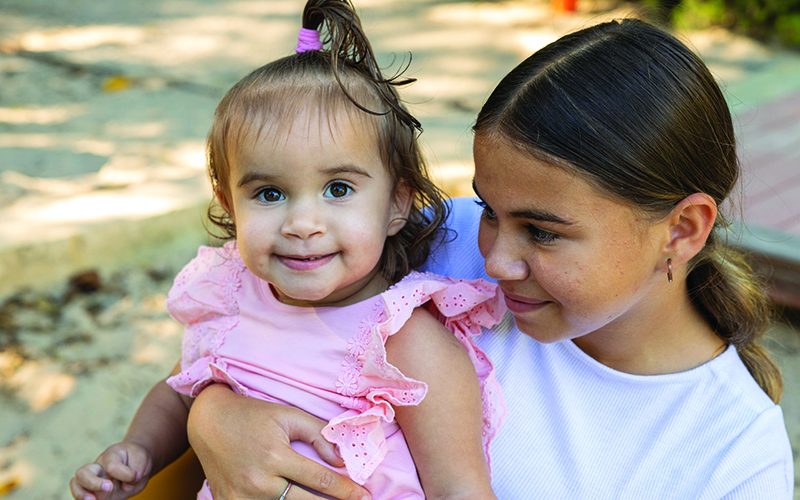The focus of the END RHD PROGRAM is tackling acute rheumatic fever (ARF), a disease caused by an abnormal immune reaction to a Strep A infection of the throat (known as 'strep throat'), or the skin.
If not managed properly, acute rheumatic fever and subsequently rheumatic heart disease can lead to heart failure, disability and premature death.
Most people with RHD live in developing countries, however Australia has some of the highest rates of the disease in the world – occurring almost exclusively in Aboriginal and Torres Strait Islander communities. In a country like Australia, rheumatic heart disease shouldn’t exist. Yet it does – taking lives, and causing disability to some of our most vulnerable.
A multidisciplinary approach to ending RHD
The END RHD Program spans a wide research portfolio of basic science to translational projects, and currently contributes to the Vaccines and Infectious Diseases Program within the Early Environment Research Focus Area and the Wesfarmers Centre for Vaccines and Infectious Diseases at The Kids Research Institute Australia.
The five teams under this program work very closely together and have an aligned focus working at different ends of the spectrum to end RHD. We are all are driven by a shared desire to accelerate research, clinical trials, treatment methods, policy and advocacy; working to prevent diseases caused by Strep A, including skin sores, sore throats, invasive Strep A, ARF and RHD.
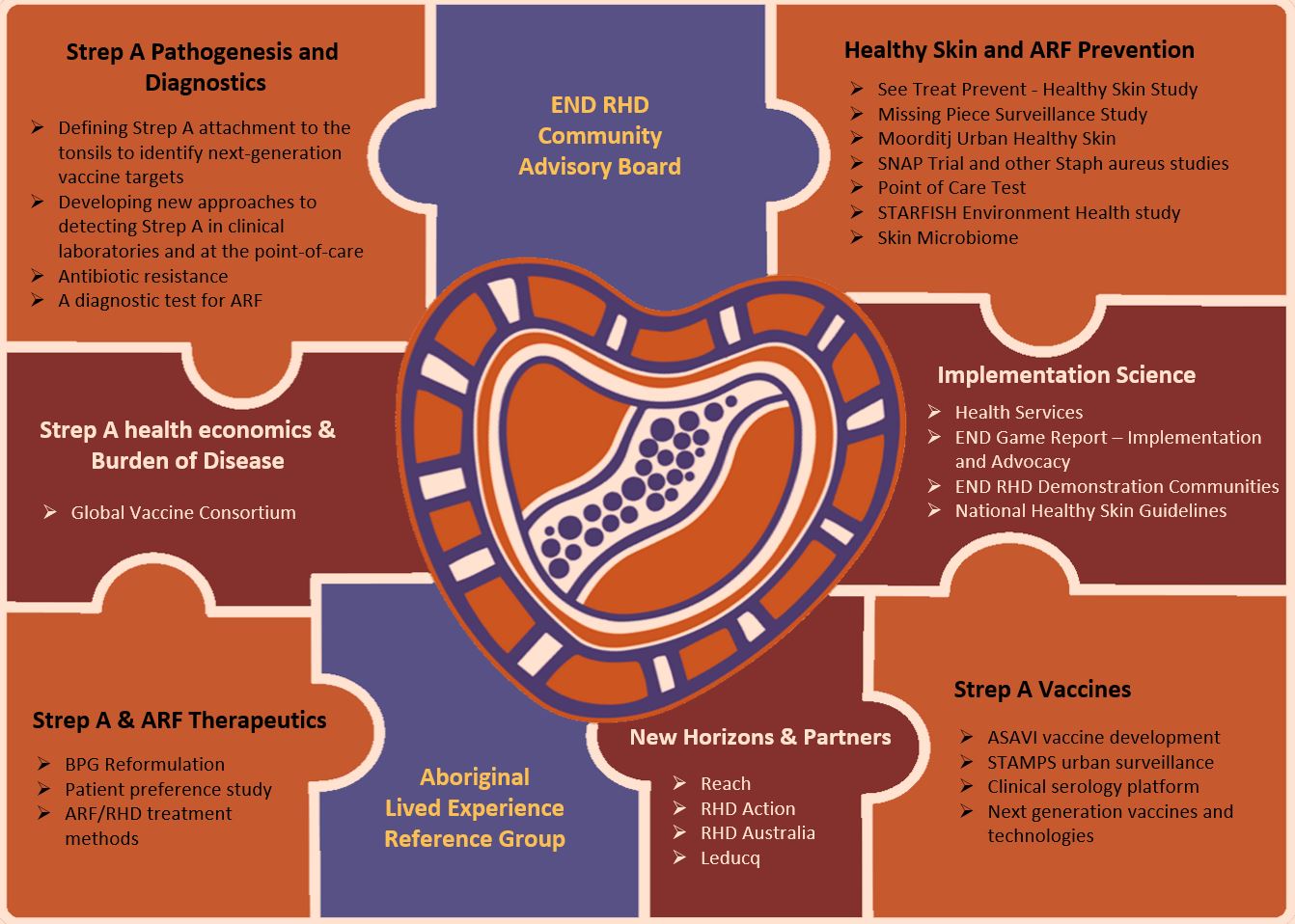
Program leader

BA (Education) PhD Candidate
Director of First Nations Strategy and Leadership; Head, First Nations Health and Equity Research

